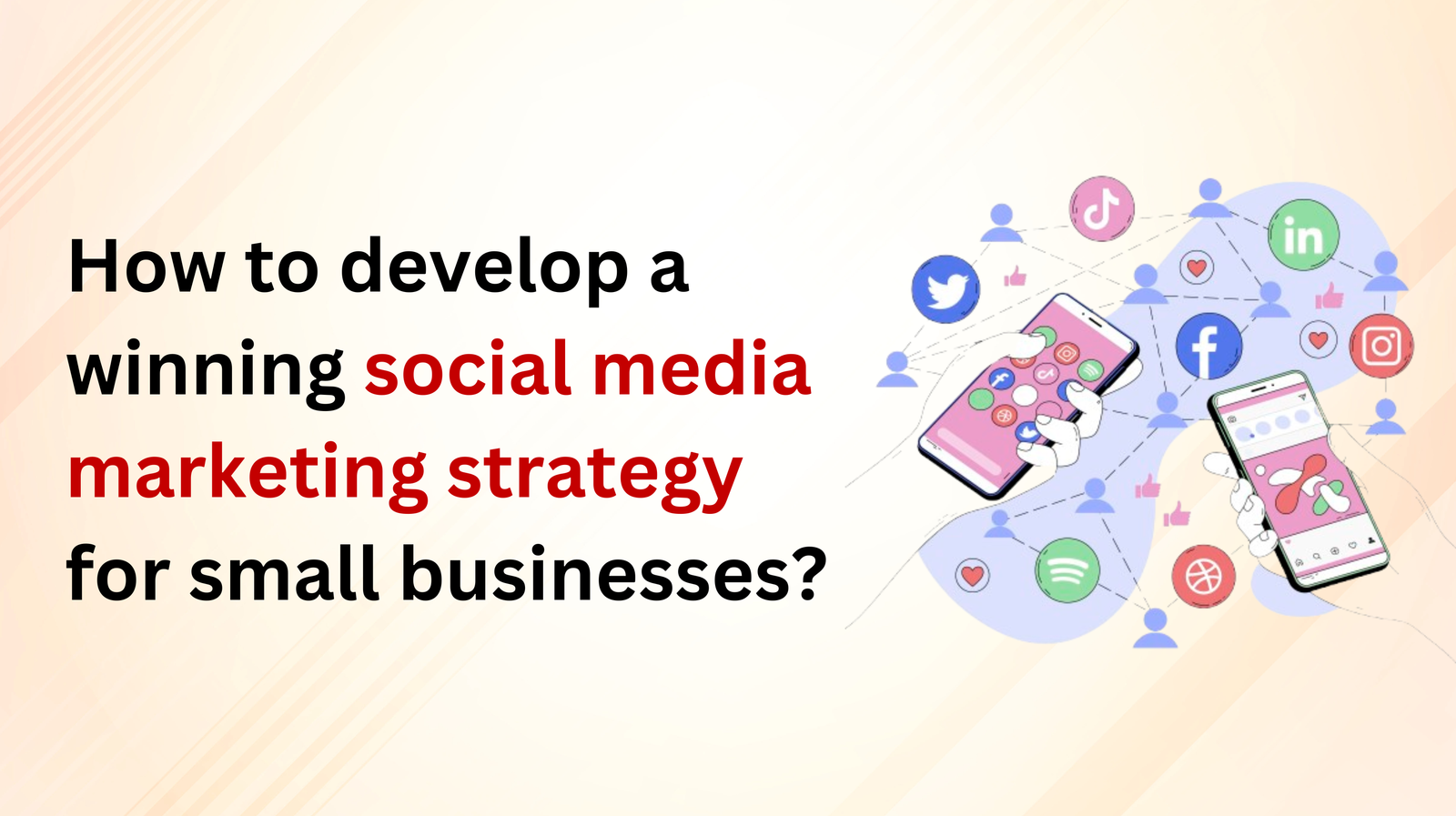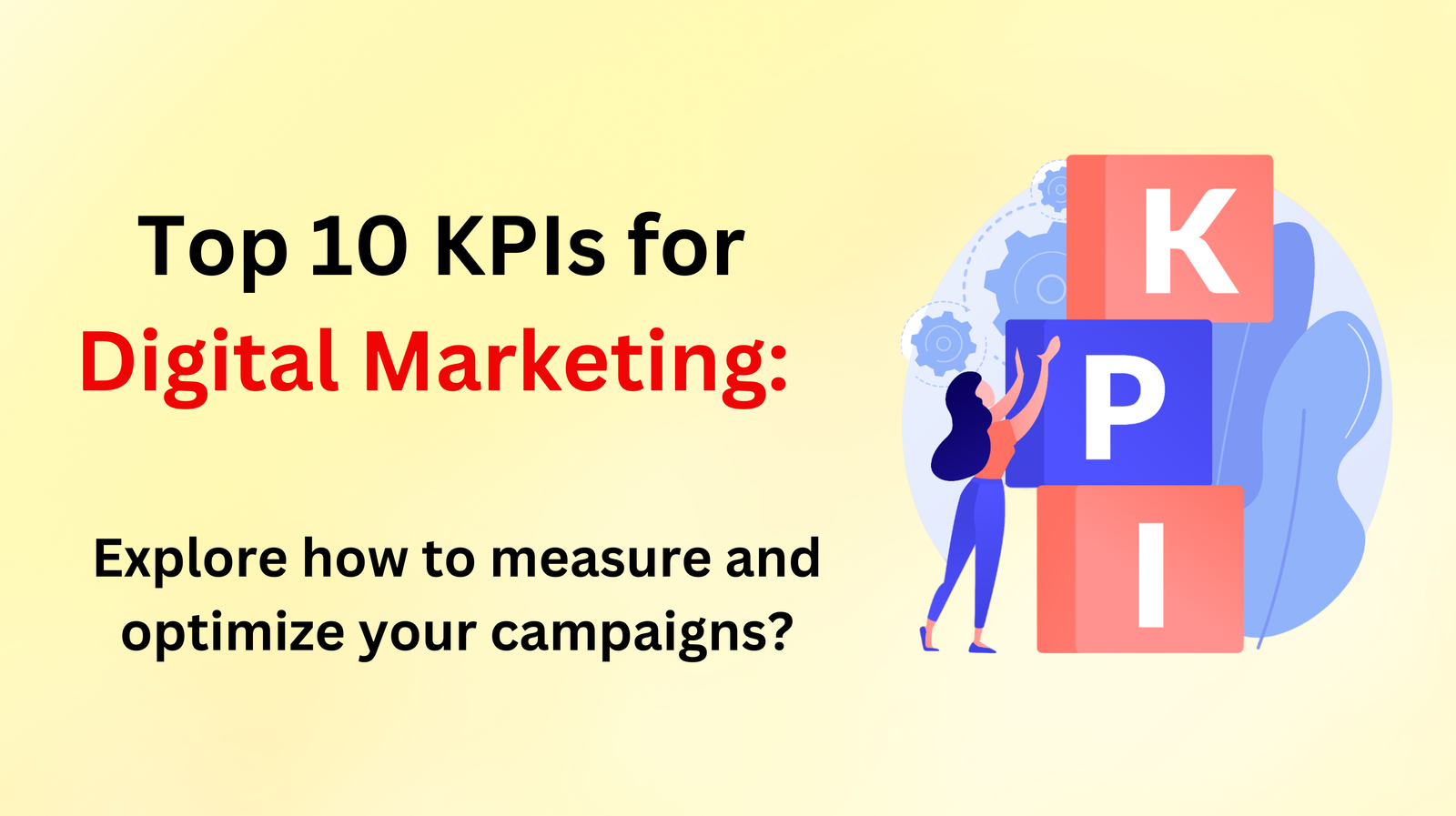In the present digital era, small businesses can no longer afford to ignore the power of social media. Did you know? “Over 70% of consumers are more likely to buy from a brand they follow on social media.” With billions of active users scrolling through their feeds daily, social media has become a goldmine for small businesses to connect with potential customers and build trusty and long lasting relationships. But having a presence on social platforms isn’t enough—you need a strategy that cuts through the noise, captures attention, and converts followers into loyal customers.
Creating an effective social media marketing strategy is crucial for small businesses looking to grow their online presence, attract customers and boost sales. As the digital world is continuously changing, knowing how to navigate social media platforms effectively that can set your business apart from the competition. In this guide, we’ll walk you through the process of developing a successful social media strategy for your small business, from setting goals to measuring performance.
Table of Contents
- Introduction
- Understanding importance of social media marketing for small businesses
- Step 1: Set clear and achievable goals
- Step 2: Understand your audience
- Step 3: Choose proper social media platforms
- Step 4: Develop a content strategy
- Step 5: Create a posting schedule
- Step 6: Engage with your audience
- Step 7: Monitor performance and adjust strategy
- Social media strategy for small businesses in 2024 – Trends and best practices
- Common mistakes to avoid in social media marketing
- Conclusion
- How Excite Template can help you build a winning social media marketing strategy?
Introduction
A successful social media marketing strategy is more than posting updates on your company’ s social media accounts. To get the desired results there must be detailed approach which includes understanding audience, setting measurable goals, creating engaging content and optimizing your strategy. With over 4.7 billion social media users worldwide the opportunities for small businesses are very high. However for true success a strategic and methodical approach is required.
Understand the importance of social media marketing for small businesses
Social media marketing is an affordable and powerful tool for small businesses to connect with their target audience, build brand awareness, and drive sales. Recent research indicates that approximately 54% of consumers turn to social media to investigate products prior to making a purchase. Additionally, around 71% are inclined to buy based on recommendations found on social media platforms. This highlights the growing need for small businesses to maintain a strong social media presence.
Benefits of social media marketing include:
- Cost effective marketing: Social media platforms allow for easy sign-ups and offer affordable advertising options.
- Brand awareness: Increases visibility by reaching potential customers who may not know about your business.
- Customer engagement: Helps build a loyal customer base through direct communication.
- Website traffic and conversions: Drives traffic to your website, potentially increasing sales.
Step 1: Set clear and achievable goals
A winning social media marketing strategy begins with setting specific, measurable, achievable, relevant, and time-bound (SMART) goals. Define what you want to accomplish, such as increasing brand awareness, generating leads, driving website traffic, or boosting sales. Here are some unique examples of SMART goals for social media marketing:
- Increase social media followers by 25% in six months.
- Increase website traffic from social media platforms by 20% in the upcoming quarter.
- Generate 50 qualified leads through social media campaigns in three months.
Step 2: Understand your audience
Knowing your audience is critical to creating relevant content and engaging them effectively. Analyze your current customers to understand their demographics, preferences, and behavior. Tools like Google Analytics, Facebook Insights, and Instagram Analytics can provide valuable data. Consider factors such as:
- Age, gender, and location.
- Interests and hobbies.
- Social media usage patterns.
Creating buyer personas can help you visualize your audience and tailor your content to meet their specific needs.
Step 3: Choose proper social media platforms
Each social media platform has its own unique features and serves distinct purposes, catering to various audiences and business needs. Selecting the appropriate platform hinges on identifying where your target audience is most engaged and considering the specific types of content you intend to share. Here’s a breakdown of popular platforms:
- Facebook: Ideal for reaching a broad audience, promoting events, and sharing multimedia content.
- Instagram: Best for visual content, targeting younger demographics and promoting lifestyle-related products.
- LinkedIn: Suitable for B2B businesses, professional networking, and sharing industry-specific content.
- Twitter: Excellent for providing real time updates, offering customer support and interacting with current trending topics.
- TikTok: Focuses on short form video content and targets younger audiences with creative and entertaining posts.
Step 4: Develop a content strategy
Content serves as the foundation of an effective social media marketing strategy. Your content for social media strategy should be diverse, engaging, and tailored to each platform. Consider the following when developing your content plan:
- Content types: Incorporate a diverse range of content types, including text updates, images, videos, infographics and engaging stories.
- Content themes: Align with your brand’s values and customer interests. For example, educational content, behind the scenes looks, or customer testimonials.
- User-generated content: Encourage your customers to share their thoughts and experiences regarding your products or services.
- Content frequency: Maintain a consistent posting schedule to engage your audience without overwhelming them.
Example Content strategy for a small business:
- Mondays: Share industry tips and advice.
- Wednesdays: Post customer success stories or testimonials.
- Fridays: Promote special deals, new arrivals, or upcoming events.
Step 5: Create a posting schedule
Creating a consistent posting schedule ensures that your content reaches your audience when they are most active. Tools like Buffer, Hootsuite, or SocialBee can help you plan and automate your posts. To determine the best posting times:
- Analyze your audience’s behavior. For example, if you’re targeting working professionals, post during lunch hours or early mornings.
- Experiment with different posting times. Track engagement rates to identify what works best.
Step 6: Engage with your audience
Social media is a two way street. Engagement is not just about broadcasting your message; it’s about responding to comments, answering queries, and building relationships with your followers. Ways to boost engagement include:
- Responding promptly to comments and messages.
- Hosting live sessions or Q&A events.
- Running polls, contests, or giveaways.
- Encouraging user interaction with questions or discussion prompts.
Step 7: Monitor performance and adjust strategy
Regularly analyze the performance of your social media efforts to ensure you’re meeting your goals. Track key metrics such as:
- Engagement rate: The total interactions that your content generates.
- Reach and impressions: The number of individuals who engage with your content.
- Conversions: Actions taken as a result of your social media content, such as website visits or purchases.
Use analytics tools provided by platforms or 3rd party apps to gather insights and adjust your strategy accordingly.
Social media marketing strategy for small businesses in 2025 – Trends and best practices
To stay competitive, incorporate the latest trends and best practices:
- Short form videos: Platforms like TikTok and Instagram Reels are increasingly popular.
- User generated content: Continue to leverage authentic customer experiences.
- Social commerce: Integrate purchasing options directly on social platforms.
- Personalization: Tailor content and ads to specific user segments.
Common mistakes to avoid in social media marketing
Even with a well though social media strategy, some common pitfalls can hinder success:
- Inconsistent posting schedules: Can cause your audience to lose interest.
- Ignoring analytics: Leads to missing insights that can improve your strategy.
- Over promotion: Focuses too much on sales rather than providing value to your audience.
- Neglecting engagement: Failing to interact with followers can make your brand appear distant.
Conclusion
Developing a winning social media marketing strategy for small businesses requires careful planning, consistency, and ongoing optimization. By setting clear goals, understanding your audience, and creating compelling content, you can effectively leverage social media to grow your business. Keep up with trends, engage actively, and monitor your performance to continually improve your approach.
For small businesses looking to succeed in social media marketing, Excite Template offers expert guidance and comprehensive services to help you reach new heights. Let’s work together to create a social media marketing strategy that drives results and maximizes your online impact.
How Excite Template can help you build a winning social media strategy for small business?
Excite Template is the top digital marketing company in Pune. We are experts in providing digital marketing services for businesses. Our team can help you develop a complete social media marketing strategy that includes:
- Customized content planning to engage your target audience.
- Monitoring performance and analyzing data are essential for improving the effectiveness and performance of your campaigns.
- Paid advertising management for targeted social media growth.
- Professional guidance on the latest social media trends and techniques.
With our expertise, you can build a powerful online presence, drive customer engagement, and achieve your marketing goals. Contact Excite Template now and grow your business with our social media marketing services in Pune.
Related Reads:
The Evolution of Digital Marketing: Emerging Trends and Innovations to Watch in 2025
Stay ahead of the curve with the latest digital marketing trends and innovations shaping the future of online marketing.Top 10 KPIs for Digital Marketing: How to Measure and Optimize Your Campaigns
Learn how to track and optimize the key performance indicators that can make your digital marketing campaigns more effective.Understanding the Importance of SEO in Web Development
Discover why SEO is a crucial element in web development and how it enhances website visibility and user experience.






